Finding the perfect four-legged companion in your golden years should bring joy, not stress. Yet many seniors find themselves overwhelmed by energetic pups who require more than they bargained for. The good news? With a little knowledge about which breeds might be challenging and which ones make ideal companions, you can discover the perfect match for your lifestyle. Whether you’re seeking a gentle lap dog or a loyal walking partner, choosing the right breed can transform your daily routine into something truly special.
Border Collie: The Workaholic Who Never Clocks Out
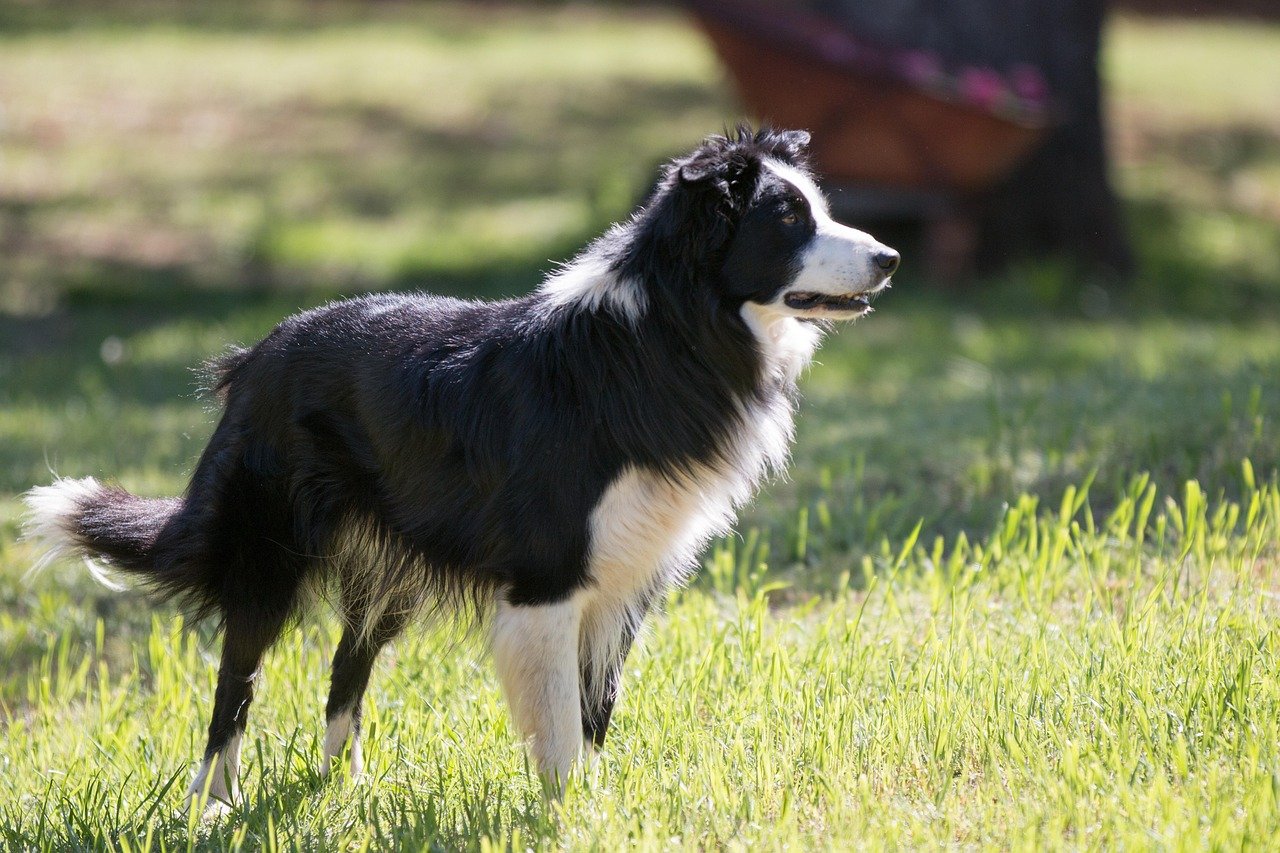
Border Collies are known for their intelligence and high energy, requiring extensive exercise and mental stimulation. Without enough activity, they can become bored and exhibit destructive behaviors, which might be overwhelming for some seniors. These brilliant dogs were bred to work all day herding sheep, and that drive doesn’t just disappear when they become house pets.
Imagine having a coworker who never takes breaks, constantly buzzes with ideas, and gets restless when there’s nothing urgent to do. That’s essentially what living with a Border Collie feels like. They require mental and physical stimulation every day, and if they don’t get it, bad things happen. While their intelligence is admirable, it can quickly become exhausting for seniors who prefer a more relaxed pace.
Siberian Husky: The Escape Artist with Boundless Energy

Huskies are beautiful and friendly dogs, but they’re also very active and known for their independent nature. Their thick coat requires regular grooming, and their need for exercise might be too demanding for seniors looking for a more laid-back companion. These stunning dogs seem to have an internal engine that never runs out of fuel.
Huskies are large, energetic, high-strung firecrackers. If you are looking for a relaxation buddy, this dog will never give you rest. Huskies require mental and physical stimulation every day, and if they don’t get it, bad things happen. Their wanderlust is legendary – they’re basically the canine equivalent of that friend who’s always planning the next adventure. For seniors seeking peaceful companionship, a Husky might feel more like hosting a hyperactive teenager.
Jack Russell Terrier: Small Size, Giant Personality Problems

Don’t let their small size fool you; Jack Russell Terriers are incredibly energetic and require a lot of exercise and mental stimulation. They can be a handful to train and manage, which might be challenging for less active seniors. These compact dynamos pack more energy per pound than most breeds twice their size.
Jack Russells and Fox Terriers are known for their boundless energy levels. These dogs can be difficult to train and may not match the lower activity level that many seniors prefer in a pet. Think of them as the class clown who never learned when to dial it down. Their mischievous nature and relentless energy can turn a quiet afternoon into an exhausting chase around the house.
Dalmatian: The Spotted Troublemaker
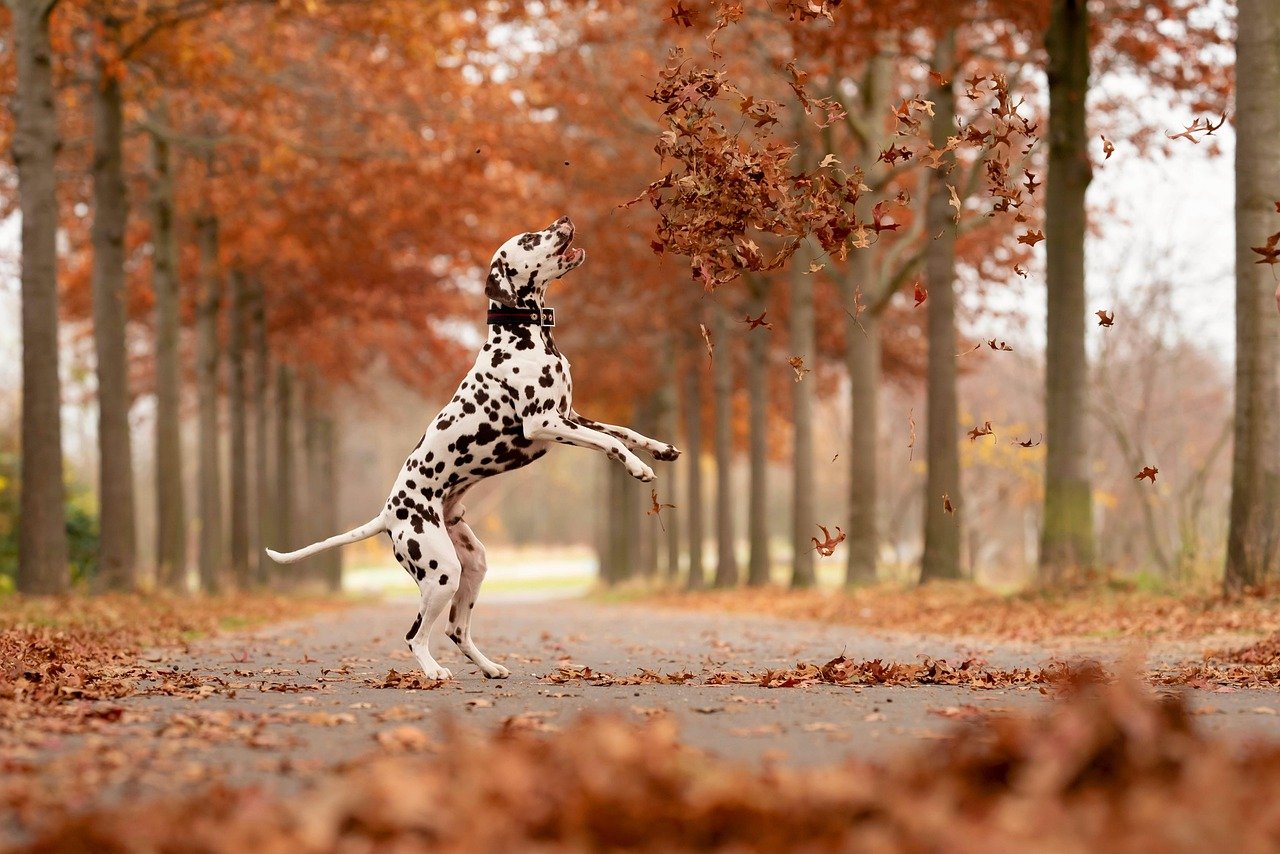
Dalmatians are large, energetic dogs that need plenty of exercise to stay happy and healthy. They can be strong-willed and may require consistent training and socialization, which might be taxing for some seniors. These iconic spotted dogs carry their firehouse heritage in their high-energy approach to life.
Dalmatians are notoriously hard to train and they require a lot of outdoor exercise that would overwhelm most seniors. They have a stubborn temperament and they can be destructive if they don’t get enough exercise outdoors. Like a beautiful sports car that demands premium fuel and constant maintenance, Dalmatians need significant investment in time and energy that many seniors simply can’t provide consistently.
German Shepherd: The Intense Guardian
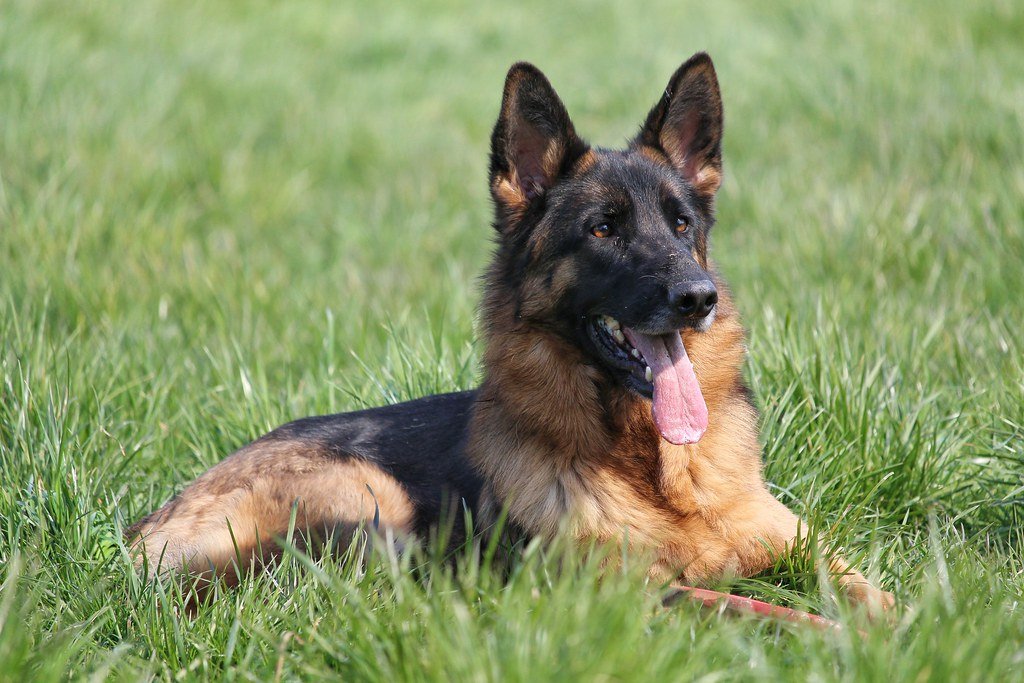
While loyal and protective, German Shepherds are large and can be intense. They require a lot of exercise, mental stimulation, and training. Their size and strength might make them difficult for some seniors to handle comfortably. These magnificent dogs approach life with the seriousness of a security professional on duty.
German Shepherds demand respect through their sheer presence and intelligence, but they also demand consistency in training and leadership. For seniors who might struggle with mobility issues, managing a strong, determined dog who weighs as much as a small person can become genuinely challenging. Their protective instincts, while admirable, require experienced handling to ensure they don’t become overprotective.
Great Dane: The Gentle Giant Who Doesn’t Know His Size

Great Danes make fantastic family pets, but they might not do so well for seniors. Danes are one of the largest domesticated dog breeds alive, which means they are a bit hard to handle. Full-grown Danes reach weights of up to 200 pounds. These towering sweethearts have hearts as big as their bodies, but their physical presence can be overwhelming.
Great Danes are incredibly family-friendly dogs, but they aren’t aware of just how big they are sometimes. Some Danes still think they’re lapdogs no matter how big they get, so it may be hard on the body after a while. Imagine trying to manage a friend who’s genuinely loving but accidentally knocks things over everywhere they go. That gentle tail wag can clear a coffee table, and their enthusiastic greeting might accidentally knock someone off balance.
Rottweiler: The Powerful Protector

Rottweilers are muscular and hardy, which can be hard to handle if you have any developing mobility issues. Since they can be a bit stubborn, they might be hard to train on the leash. If they are aggressive, which is semi-prevalent in the breed, they might be hard to call off. These powerful dogs were bred to drive cattle and guard property, instincts that require experienced handling.
Breeds with more aggressive temperaments, such as Dobermans and Rottweilers, are generally not recommended for seniors. These dogs can be challenging to control and may present safety concerns, especially for older individuals. While many Rottweilers are gentle souls, their strength and protective nature mean they need owners who can confidently provide leadership and training.
Boxer: The Playful Powerhouse
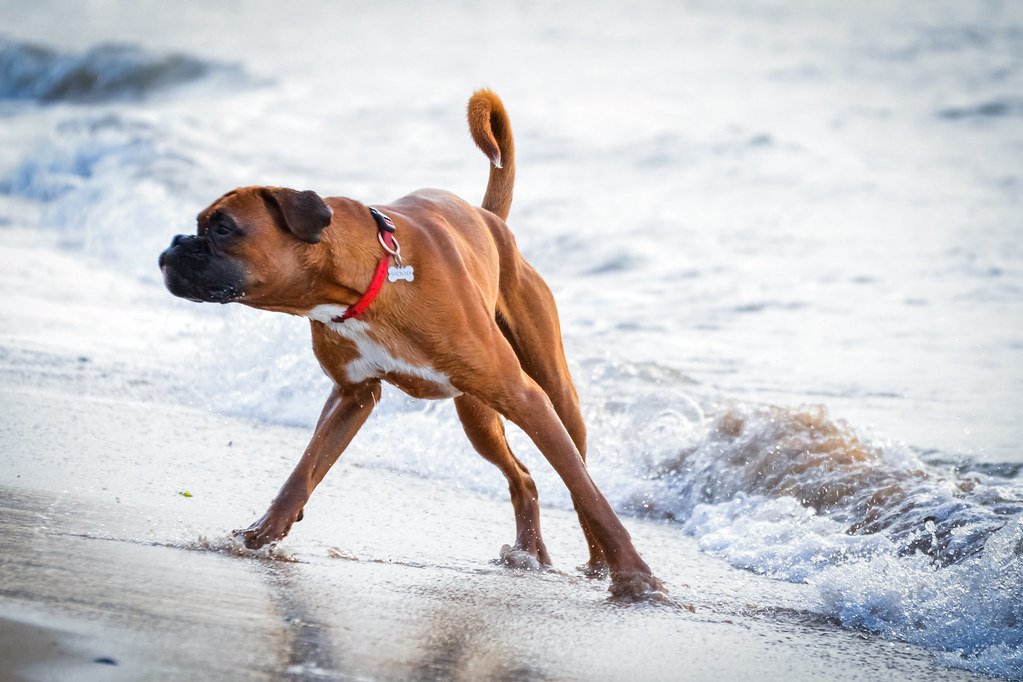
Boxers are wonderful family dogs, but they do have boundless energy. Because of their vitality, they can be challenging for older people to deal with. Many Boxers tend to even out over time. However, untrained Boxers are known for pawing and jumping behavior, which can cause accidental falls. These athletic comedians approach life like it’s one big playground.
Since these dogs are large and athletically built, they can be boulders when they want to be. Their playfulness can be a lot to take in, especially if they haven’t learned to control it yet. Boxers have the enthusiasm of a teenager combined with the strength of an adult athlete. Their bouncy, physical play style can be exhausting and potentially dangerous for seniors who might not be steady on their feet.
Chihuahua: The Tiny Tyrant

Chihuahuas are very small, weighing not more than 6 pounds, but they have a loud bark that well makes up for their small size. The Chihuahua can be extremely difficult to house train and many owners recommend keeping a litter box in the house just in case. These pocket-sized personalities often forget they’re not actually the size of a German Shepherd.
While their small size might seem manageable, Chihuahuas can be surprisingly demanding. They often develop what experts call “small dog syndrome,” where they compensate for their tiny stature with oversized attitudes. Their tendency toward excessive barking and territorial behavior can create stress rather than the peaceful companionship most seniors seek.
Weimaraner: The Gray Ghost with Endless Stamina
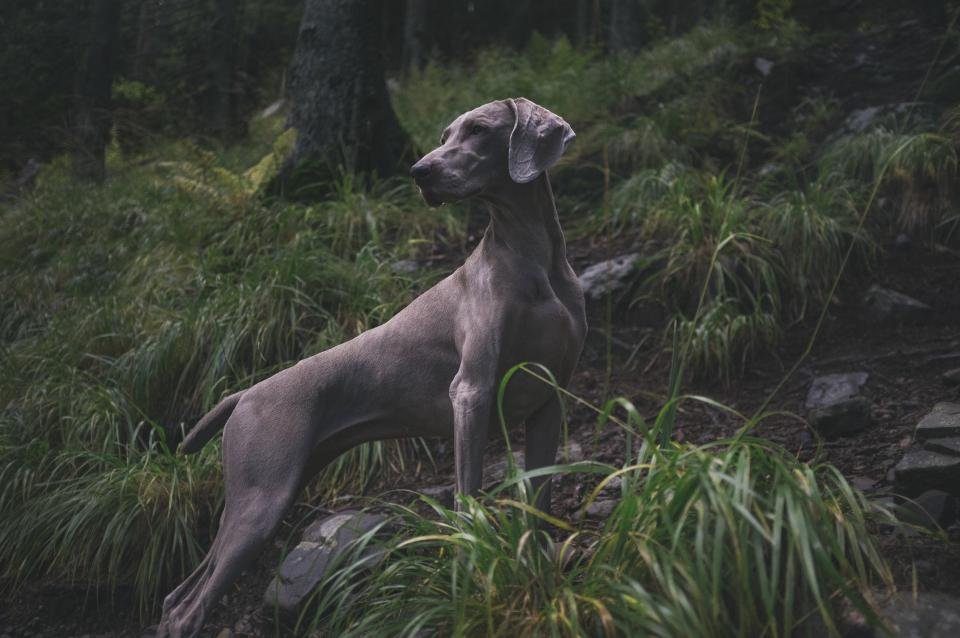
These elegant silver dogs were bred for hunting all day in challenging terrain, and that athletic heritage runs deep in their DNA. Weimaraners are like that friend who suggests a five-mile hike when you were thinking more along the lines of a gentle stroll around the block. They need substantial physical activity and mental challenges to prevent destructive behavior.
Their clingy nature, while endearing to some, can become overwhelming for seniors who value some independence. These dogs literally earned the nickname “gray ghost” partly because they tend to follow their owners everywhere, including the bathroom. For seniors seeking a more balanced relationship with their pet, this level of attachment can feel suffocating rather than comforting.
The Perfect Alternative: Cavalier King Charles Spaniel

A gentle dog breed, the Cavalier King Charles Spaniel is one of the most affectionate dogs. They don’t shed that much and only need to be groomed about once a month. They’re trainable and can play with other dogs after they’ve been introduced and socialized. These royal beauties offer everything seniors want in a canine companion without the overwhelming demands.
The most affectionate dog breeds for seniors include Cavalier King Charles Spaniels, Golden Retrievers, Poodles, Shih Tzus, and French Bulldogs. These breeds are known for their loving and loyal nature, making them ideal companions for seniors. Cavaliers have mastered the art of being present without being pushy, offering comfort without chaos. Their moderate size makes them easy to handle, while their gentle temperament ensures they’ll enhance rather than complicate your daily routine.
The Serene Companion: Greyhound
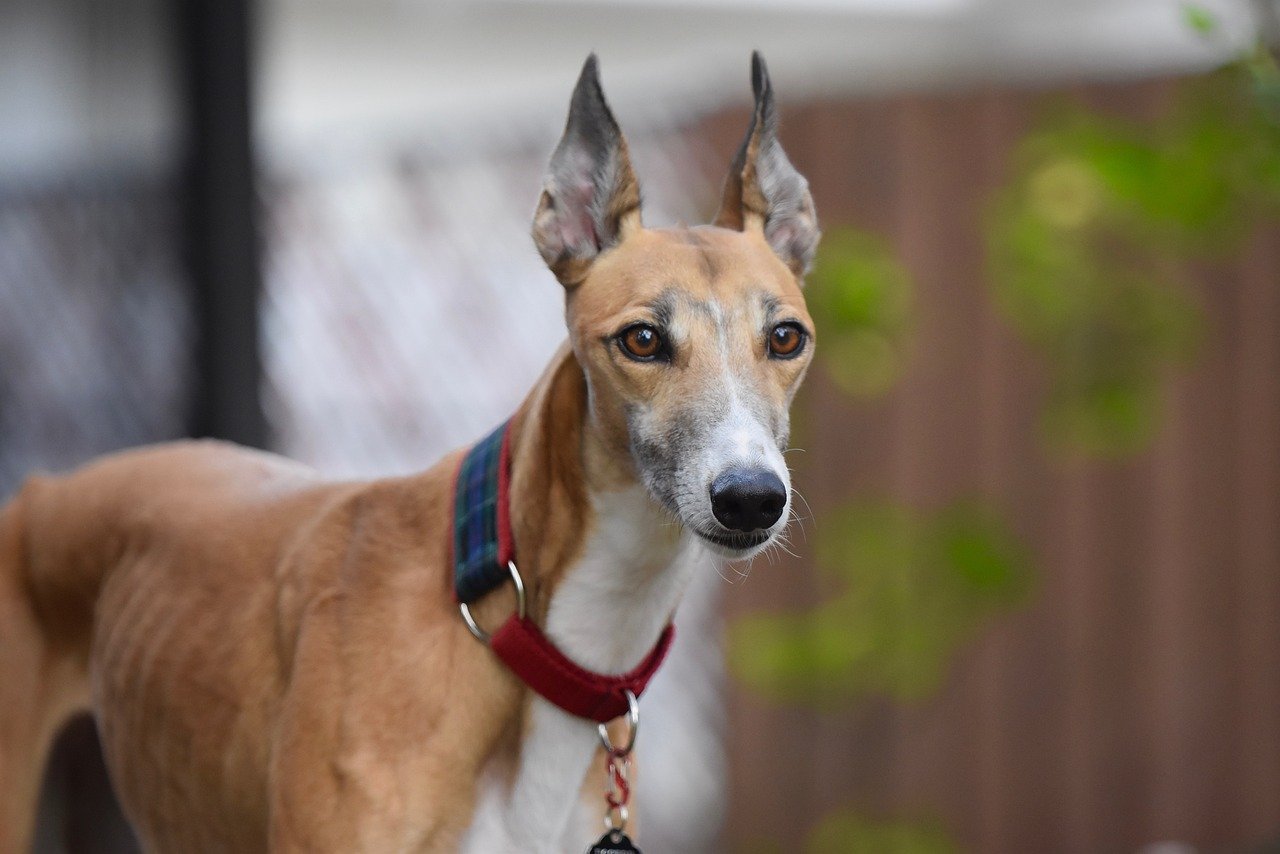
The fastest dog breed in the world, the Greyhound may seem like an unlikely fit among the best dogs for older people. However, this athletic dog is low-key, calm, and content with lounging around the home once it gets in its exercise. Plus, Greyhounds are ideal dogs for senior citizens who prefer larger—but manageable—furry friends. These racing legends are living proof that you can be athletic and laid-back at the same time.
While Greyhounds are larger dogs and extremely fast, it doesn’t mean they actually want to spend their time running around all day. Greyhounds are generally calm, affectionate with others, and can do well with one daily walk. Relatively easy to care for, the Greyhound is a great choice for a furry companion. Think of them as retired athletes who’ve earned their right to spend most of their time lounging on the couch, perfectly content with a moderate daily walk.
The Gentle Giant Alternative: French Bulldog

With their big eyes, adorable scrunchy faces, and short legs, there’s a reason why French bulldogs are the second most popular breed in the United States today. Their gentle personality and low energy make them one of the best dogs for seniors with a less active lifestyle. These dogs are not big athletes, a walk around the block is all the exercise they need for the day. Frenchies are like having a wise, calm friend who’s always up for whatever you’re doing.
For older adults seeking a low-energy, low-maintenance dog, the French Bulldog is a perfect fit. These dogs are loyal and friendly, with a calm temperament that suits apartment living or smaller homes. French Bulldogs do not require extensive exercise. Additionally, they have minimal grooming needs, making them an easy breed to care for. Their compact size and easy-going nature make them ideal for seniors who want a substantial companion without the physical challenges that come with larger, more energetic breeds.
The Portable Pal: Shih Tzu
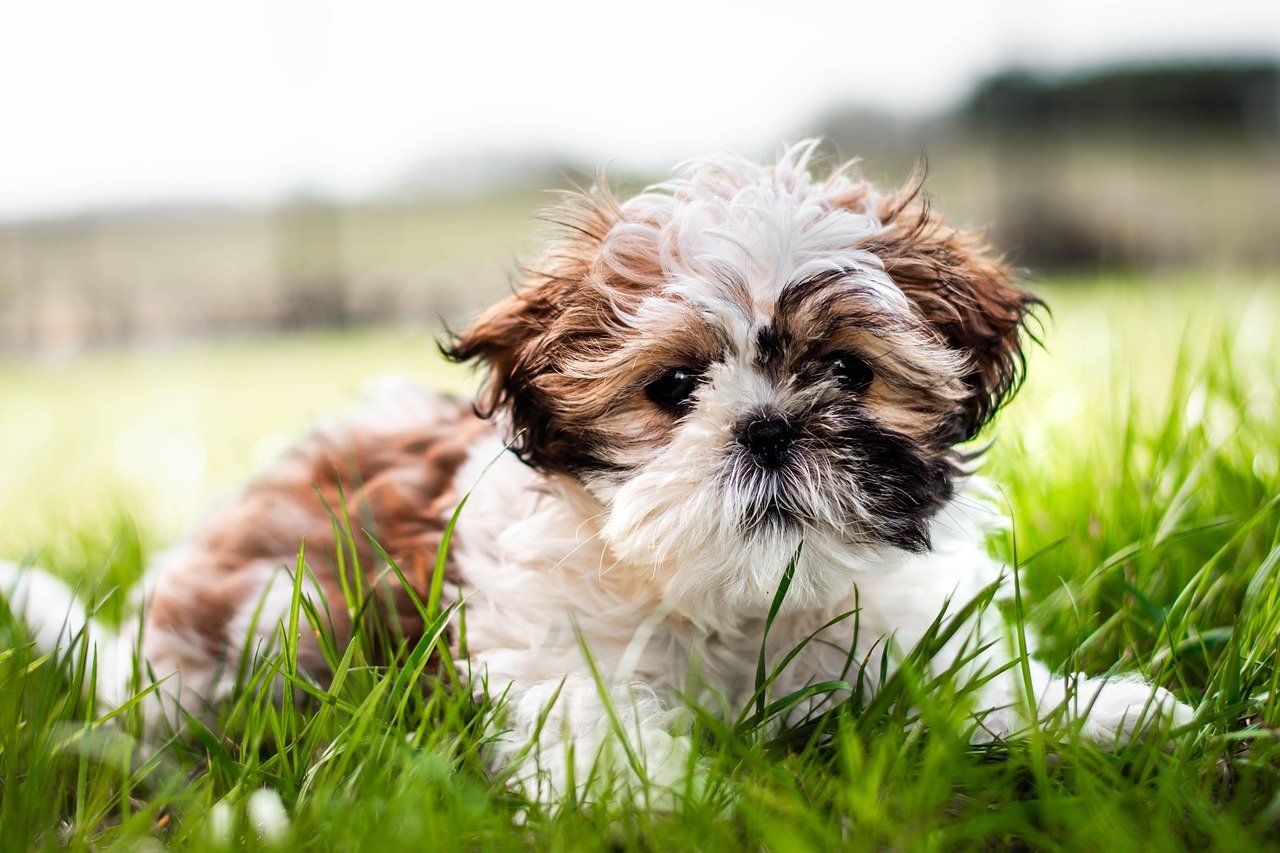
The elegant Shih Tzu prospers with plenty of love and attention. This outgoing breed is also great with kids, making them a perfect playtime buddy when the grandchildren visit! The Shih Tzu is an affectionate dog who enjoys spending time with their pet parent—whether it’s cuddling or accompanying them throughout the house. Plus, this breed is amiable and welcoming to other people and pets. These little lions have perfected the art of being simultaneously regal and cuddly.
Shih Tzus are great companion dogs for seniors thanks to their low-to-moderate energy and small size. These happy-go-lucky dogs are affectionate and gentle enough to be around children and the elderly. They do well with short walks, which can help keep your loved one more active. Their manageable grooming needs and adaptable personality make them excellent choices for seniors who want a beautiful, loving companion without excessive demands.
The Cheerful Companion: Bichon Frise

These white powder puffs of a dog are known for their sweet and friendly nature and are perfect for seniors seeking easy companionship. These low-maintenance pups aren’t difficult to potty train and don’t shed much, which is why they are one of the best dogs for older people. Bichons are gentle and playful and they get along well with other pets and children, so you don’t need to put them in another room if the grandkids stop by! These fluffy clouds of happiness bring joy without the storm of high maintenance.
The Bichon Frise is a friendly, playful breed that thrives on companionship. These dogs are small and easy to manage, making them a good choice for older individuals. While they enjoy playtime and light activity, they can adjust to the energy level of their owners. Their hypoallergenic coat and sunny disposition make them particularly appealing for seniors who want a dog that brings smiles without bringing allergens or excessive grooming demands.
The Devoted Friend: Pug
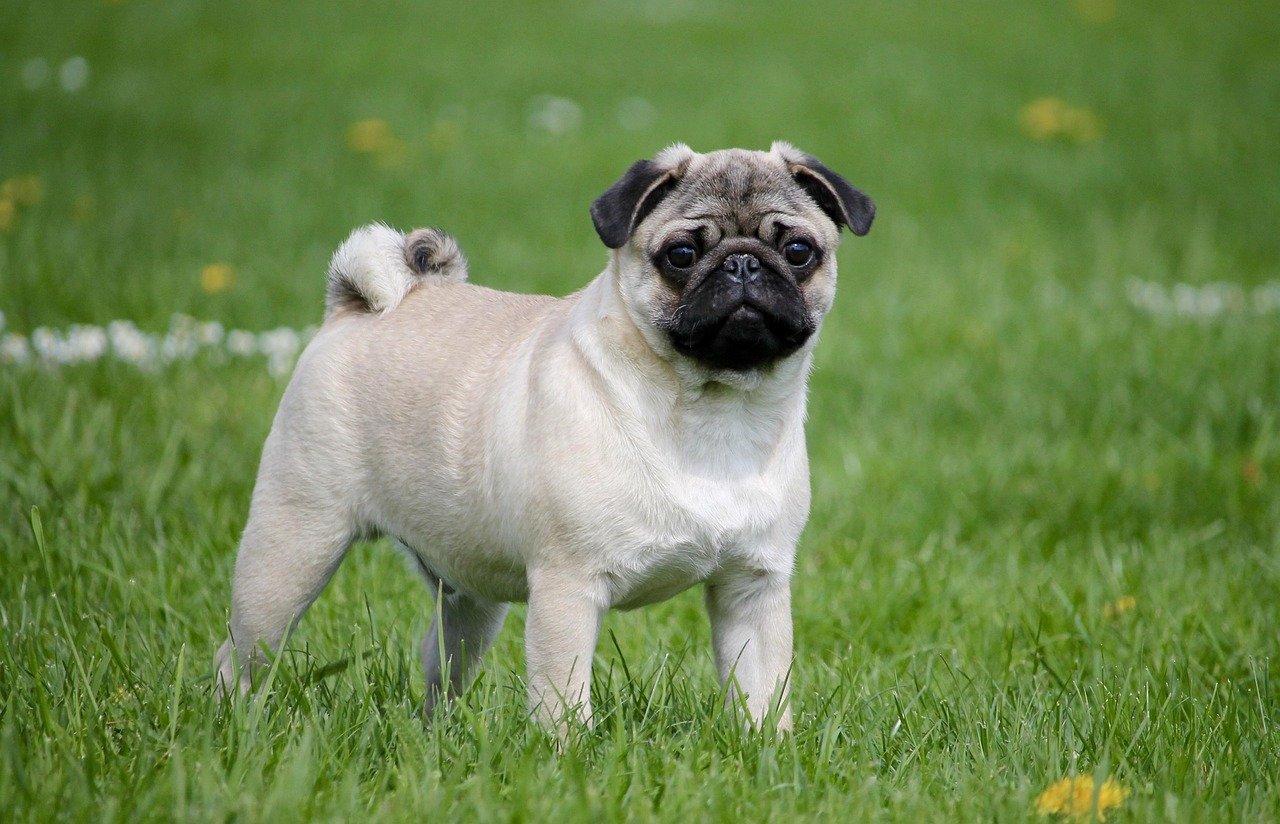
Pugs have a childlike disposition, affectionate, and intensely loyal. Seniors who aren’t very active or mobile will appreciate pugs’ low energy levels. They don’t need much exercise and usually become very uncomfortable in high heat. These wrinkled comedians are like having a best friend who’s always happy to see you and never judges your choice to stay in pajamas all day.
Pugs are one of the best companion dogs for seniors because they were originally bred to be lap dogs. Pugs are a low-energy breed that will love spending time snuggling with you on the couch. They are a smart, friendly, and relatively calm breed suitable for small apartments. Their compact size, minimal exercise needs, and maximum affection quotient make them perfect for seniors who want a dog that’s more interested in sharing the couch than sharing a morning jog.
The Elegant Aristocrat: Italian Greyhound

Italian greyhounds are one of the best dogs for seniors because their sensitive and playful nature makes them loving companions. Plus, they are small enough to curl up in your lap and have some of the lowest grooming needs of any breed. Adopting an older Italian grayhound may work best for seniors, as younger ones still require multiple daily walks. These miniature greyhounds are like owning a piece of living art that also happens to be an excellent cuddler.
If they’re given time to sprint around an enclosed yard or field, they will be ready to relax on the couch at the end of the day. Italian Greyhounds offer the perfect balance of grace and laziness, providing brief moments of elegant athleticism followed by hours of contentment curled up beside you. Their minimal grooming needs and gentle temperament make them ideal for seniors who appreciate beauty without high maintenance.
The Loyal Lapdog: Havanese

Havanese are outgoing and intelligent dogs with low-to-medium energy and are a great dog breed for seniors. They are social, trainable dogs that adapt well to most situations. However, this often works out well for seniors who spend most of their time at home. These Cuban charmers are like having a social butterfly who’s perfectly content to have their social circle consist entirely of you.
Havanese are one of the most charming dogs. They are sociable, friendly, and highly trainable. Their miniature size and moderate exercise needs make them perfect for older people. While they do have some grooming requirements, their intelligence and adaptability make them wonderful companions for seniors who want a dog that’s genuinely interested in being part of their daily routine without being overwhelming about it.
The Calm Communicator: Beagle

Beagle is one of the best dog breeds for seniors. These dogs are affectionate and loyal, so they can provide good companionship to older adults. In addition, their short coat makes them low maintenance and their moderate size makes them suitable for various living situations, including apartments or homes with limited space. These friendly hounds offer the perfect middle ground between too small and too large, too energetic and too sedentary.
The Beagle is an excellent choice if you’re looking for a friendly and active dog. Their medium size makes them a good fit for seniors who have a bit more space. Beagles typically have gentle, playful personalities, and are usually eager to explore and join in on family activities. While Beagles may have more energy than some smaller breeds, their exercise needs are manageable with just a few walks each day. Think of them as the ideal walking companion who’s always game for an adventure but won’t make you feel guilty if you prefer a quiet day at home.
Conclusion
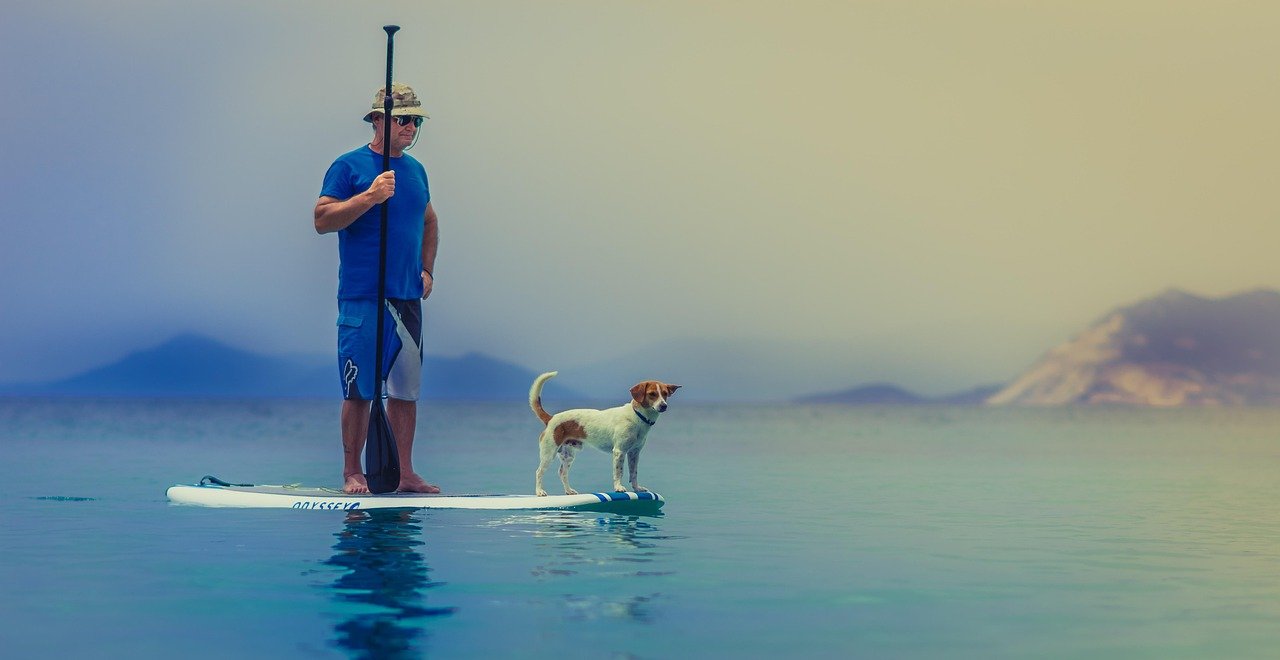
Choosing the right canine companion for your golden years doesn’t have to feel overwhelming or risky. While some breeds might seem appealing at first glance, understanding their true needs can save you from years of stress and exhaustion. The high-energy breeds we’ve discussed aren’t bad dogs – they’re simply mismatched for most senior lifestyles.
The alternative breeds we’ve highlighted offer everything wonderful about dog ownership without the demanding challenges. When choosing the best dog for seniors, it’s essential to find one whose energy level complements their lifestyle. A calm, gentle dog can be the ideal companion, offering affection and companionship without the demands of intense activity. These dogs can encourage light movement, such as short daily walks or playtime, while also enjoying quiet moments and relaxation. Finding a breed with a balanced temperament can help bring comfort, routine, and joy to a senior’s daily life.
Your perfect furry friend is out there, ready to share cozy afternoons, gentle walks, and unconditional love. The key is choosing a breed that enhances your lifestyle rather than overwhelming it. After all, shouldn’t your golden years be filled with golden moments of pure companionship?
What would you have guessed about the difference between a dog’s energy level and their size?

Esther is from India; the heartbeat of South Asia, holding a Master’s degree in Zoology and a postgraduate diploma in Animal Welfare. Her enthusiasm for animal welfare drives her passion and dedication to working for animals, ensuring their well-being, and advocating for their rights. With a solid academic background and hands-on experience, she is committed to making a positive impact in the field of animal welfare. In her free time, she enjoys embroidery and sewing. As a Chennaite from Tamil Nadu, Esther loves Bharathanatyam, an Indian classical dance form.





